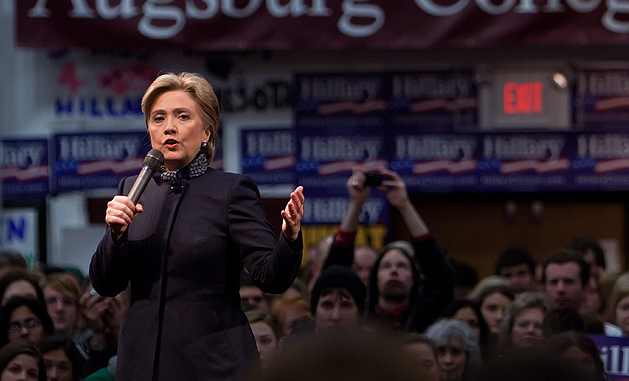Campaign Promises vs. Actual Governing
There always seems to be a decently large gap between what candidates promise to do and what actually gets done in office. Many are blaming the fact that the House majority is of one political party affiliation and the executive is of the other political party. President Obama talked about how bipartisanship would correct these errors but it has been a fight to get his reforms off the ground due to the Republican majority in the house. Are candidates analyzing this and reeling in their promises to stay more true to what they can realistically accomplish? How will this affect Democratic debate ratings this evening? Here is one blogger’s analysis on the debate.
The GOP primary debates in August and September were ratings blockbusters, in large part because the Republican Party has degenerated into a drunken circus. But notwithstanding the fact that three of the candidates on stage Tuesday night—former Maryland Governor Martin O’Malley; former Senator Jim Webb; former Rhode Island Governor Lincoln Chafee—have negligible support among Democratic voters, and thus a big incentive to make an impression, the first Democratic debate is expected to be a more sober, and lower-rated event.
An obvious, but undermentioned reality of U.S. politics at the moment is that making a splash in the Democratic party doesn’t require grasping for reactionary, unpopular policy positions, while in the Republican party, it does.
But just because the Democratic candidates don’t deny climate change, or promise to build walls along our borders and deport all of our unauthorized immigrants, doesn’t make them immune to trafficking in fantasy. And that makes it incumbent upon us in the media to clearly distinguish between the candidates’ ideological preferences, and the promises they’ll reliably be able to keep.
The gloomy truth about the 2016 campaign is that while Democratic candidates, like Republican candidates, must campaign on aspirations, all of them are aware that if the country elects a Democrat in 2016, he or she will probably inherit a Republican House, and perhaps a Republican Senate as well, significantly limiting the potential scope of liberal reform.
Democratic candidates can draw strong ideological distinctions between one another, but their presidencies will be circumscribed by less lofty constraints like political strategy and technocratic imagination.
For instance: Bernie Sanders wants college to be free for everyone; Hillary Clinton wants to means test tuition subsidies. This tells you something important about the different roles the two candidates think the federal government should play in our higher education system, but almost nothing about how higher education policy would change in a Sanders or Clinton presidency.
Tuesday night’s debate is an opportunity to sort abstract preferences from the likely governing constraints a Democratic president will face in 2017, and to assess the candidates’ strategic thinking about how to work through or around those constraints.
We already know how the leading candidates propose to grapple with polarization and gridlock. Clinton has consistently argued that making progress in our system of government today requires an appetite and instinct for partisan combat—a theory bolstered by the massive resistance with which Republicans responded to President Barack Obama’s promise of accommodation and bipartisanship.
Read more at: newrepublic.com.


